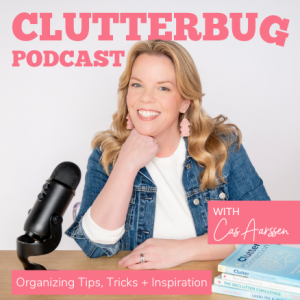

What exactly is money?
Craig Barfoot spoke to Nigel Dodd, Professor of Sociology at LSE and author of The Social Life of Money, to find out.
Nigel Dodd: We usually think of money as notes and coins, or even gold. But, in fact, it mostly takes the form of claims made through the banking system, mediated by plastic cards! Money has a dynamic quality – it is more like a verb than a noun.
Money is claims that move between people, and it is that movement that sustains its value. It has valu...
What exactly is money?
Craig Barfoot spoke to Nigel Dodd, Professor of Sociology at LSE and author of The Social Life of Money, to find out.
Nigel Dodd: We usually think of money as notes and coins, or even gold. But, in fact, it mostly takes the form of claims made through the banking system, mediated by plastic cards! Money has a dynamic quality – it is more like a verb than a noun.
Money is claims that move between people, and it is that movement that sustains its value. It has value not because it has intrinsic qualities, but because of the series of relationships it is part of. For example, you accept euros or pounds or dollars or yen in return for your work, and you then exchange them for goods and services.
In other words, money is what it does rather than what it is.
Craig Barfoot: So is it about trust?
ND: Money is partly about trust. We want to trust that the money in our pocket will retain its value. We don’t want to be worrying about money, indeed as soon as we do it means money is in trouble eg in periods of hyperinflation. As soon as it is under threat, we start thinking about it, which we don’t normally do. If you ask people in Britain, for example, if they want to join the euro, you find out all sorts of things about the assumptions people make and the way they think about their money – it means something to do with values, history, culture etc.
CB: One idea is that money is a claim on society
ND: David Frisby, translator of Georg Simmel's The Philosophy of Money, reminded me that my book was about money, not banking! And he was right, what we had witnessed in 2008-9 was a financial crisis, and that was not the same as a crisis about money. Money is not the same as finance, it is not reduceable to the banking system.
I saw this banner at the occupy movement rally in Paternoster Square which said, ‘We are the true currency’. And I remember thinking, ‘that is really interesting, what is being suggested here is that there is a representation of money which is much closer to our core humanity, or communality, our sociality.’ It is not the state or wall street or the banks – money is us, it isn’t the banks, we need to reclaim it.
Money is a claim upon society – we have a generalised claim that we can levy on anyone else. We can exchange the money for goods. With any payment community – the European Union, UK, or in Bristol, the Bristol pound.
Money is a claim on social life. Each chapter in my book is an iteration of Georg Simmel's idea of money as 'a claim on society'.
CB: You talk about monies – not money, but surely I have just one currency, euros.
ND: Air miles, euros, pounds, store cards, the Brixton pound, Bitcoin, local currencies emerging in Greece – they are all forms of money.
And what is more, the way we pay is changing. Soon we will all be paying with our mobile phones. And that means participating in payments networks that aren’t connected to the banking system, such as ApplePay.
CB: So can anyone start their own currency?
ND: Yes, but that was not always the case. In Austria in 1920s, a town launched a successful currency, and several others started up, but that was stopped by an Austrian law. However, in most countries you can, though you obviously have to go through certain regulatory rules, eg the Bristol pound is backed by pound sterling. What is happening is that smaller and smaller groups are establishing their own money for certain things – that is exciting
CB: Control of money supply is control of power. Why are governments prepared to allow others to start their own currency?
ND: This is about the end of the national monopoly over the production of money, rather than the end of national money. What we see emerging is small, minor currencies which answer a need – eg currencies that work for the unbanked. For example, in Argentina after the default the official currency collapsed and smaller local currencies,...
View more
Comments (3)
More Episodes
All Episodes>>You may also like
Create Your Podcast In Minutes
- Full-featured podcast site
- Unlimited storage and bandwidth
- Comprehensive podcast stats
- Distribute to Apple Podcasts, Spotify, and more
- Make money with your podcast
It is Free












